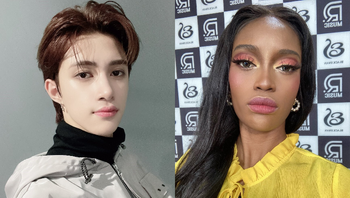
Blackswan Fatou's Instagram / EXP Edition's Instagram / Alex Reid's Instagram
Hallyu (the Korean wave) has become even more of a global phenomenon in recent years reaching every corner of the globe. K-Pop, in particular, is one of Korea's hottest commodities, with a cornucopia of artists for fans to admire. The genre has evolved in several ways since its invention. Be it musically, conceptually, in terms of marketing, etc.
The expansion of K-Pop has been rapid and had an exponential effect on fanbases. In doing so, it has also given birth to plentiful opportunities for non-Koreans to enter the K-Pop industry (both onstage and behind-the-scenes). As companies shift to a focus on global appeal, they have changed their offering to be more accommodating to worldwide target markets.
Whilst they have done this in many ways. One of the notable ways that some companies have been gaining international appeal for their K-pop groups is by debuting more and more non-Korean idols.
Holding global auditions and scouting has become a more common step in the group formation process in recent years. Before, global auditions and scouting used to mostly result in the debut of non-Korean idols who are of Asian descent, notably from countries such as Japan, China, Taiwan, etc. However, in recent years, the field has expanded to other countries/nationalities, too.
In addition to the increase in industry-specific interest from the fans, the game has evolved significantly.
Today we'll take a closer look at how this evolution has brought non-Asian K-Pop idols, in particular, to the forefront. We will focus on the response that their presence in the industry has gained and the
Enjoy full access for just $1
Join over 10,000 active members!
🌟 Special Contents for Subscribers
















